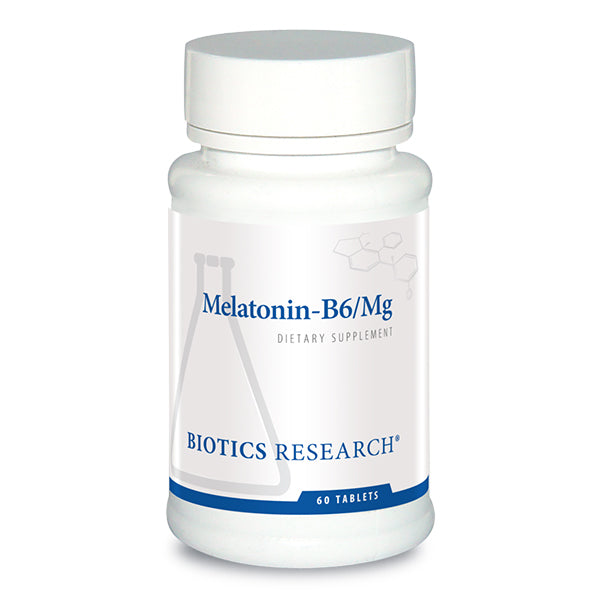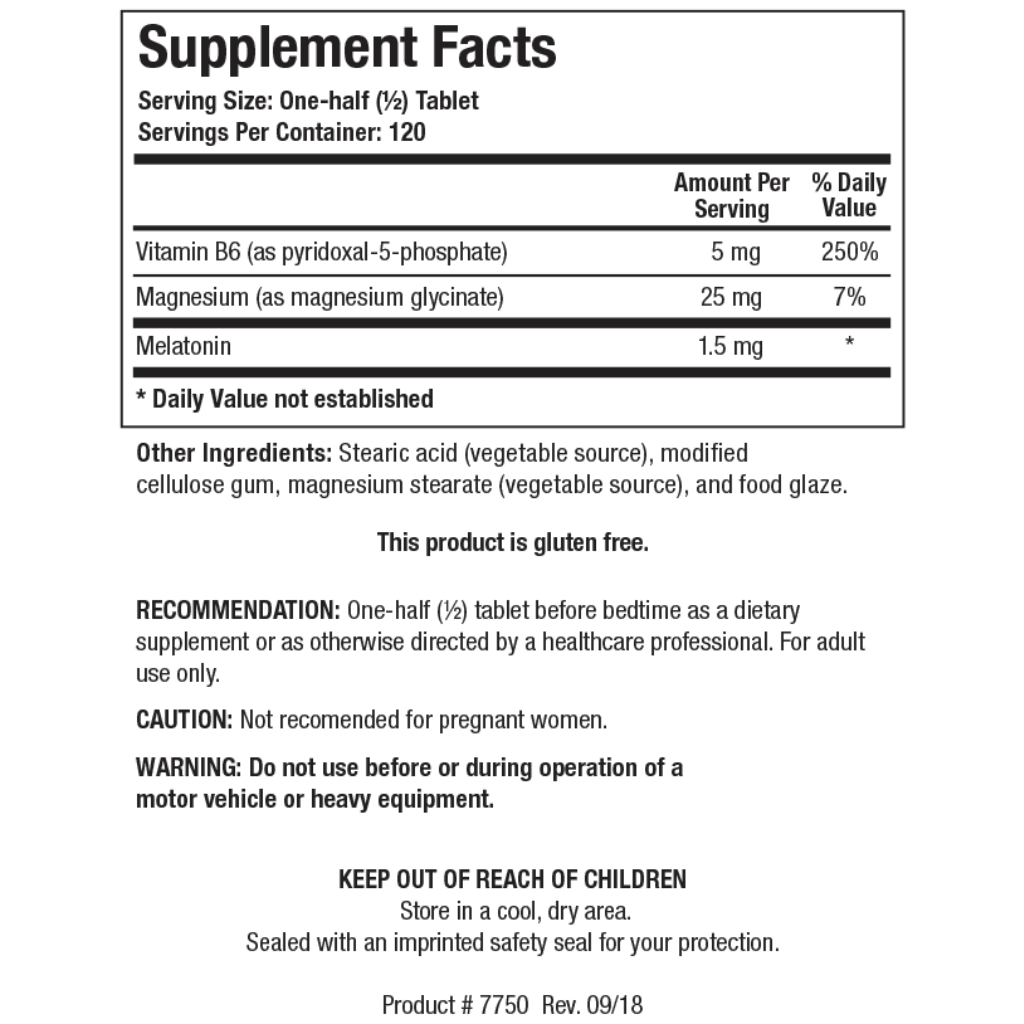-
60 Tablets
Melatonin supports a normal circadian rhythm for healthy sleep patterns, and provides support for GI health via its antioxidant effect. B6 (as P-5-P) and magnesium support protein synthesis, GABA production, dopa to dopamine conversion, and structural and dynamic functions including modulation of enzyme activities.
-
Recommend dosage One-half (1⁄2) tablet before bedtime as a dietary supplement or as otherwise directed by a healthcare professional. For adult use only.
CAUTION: Not recommended for pregnant women
WARNING: Do not use before or during operation of a motor vehicle or heavy equipment.
Melatonin is an indole neurohormone secreted by the pineal gland, and is often referred to as the “biological time keeper of hormone secretion.” It is produced in the brain from the amino acid tryptophan, and it functions to maintain the body’s circadian rhythm. It also possesses antioxidant properties. Blood levels of this hormone are typically high at night and low during the day. In addition to maintaining the circadian rhythm, Melatonin is also proposed to play a role in the biologic regulation of sleep, mood, and possibly reproduction, and aging. In fact, several double-blind studies have noted the e ectiveness of Melatonin in sleep promotion. Furthermore, Melatonin has also been correlated to controlling the “timing and release of female reproductive hormones.” As such, it functions in the determination of the period a woman begins to menstruate, the frequency and duration of menstrual cycles, and when a woman discontinues menstruating (menopause).
Vitamin B6, pyridoxal 5-phosphate or P5P, plays an important role in “steroid hormone-induced protein synthesis.” The body produces GABA from glutamic acid in the presence of B6. Additionally, the conversion of dopa to dopamine is a vitamin B6 dependent process. B6 also functions as a catalyst in about 100 other enzymes, including the role it plays in the synthesis of other neurotransmitters, including serotonin, dopamine, norepinephrine and epinephrine.
Magnesium (Mg) plays a functional role in many processes. The body’s pool of Mg serves in structural functions (e.g. uidity and stability of phospholipid bilayers, protein tertiary or quaternary structures and DNA double helices), and dynamic functions including a cofactor or allosteric modulator of enzyme activities.
Download Product Info



